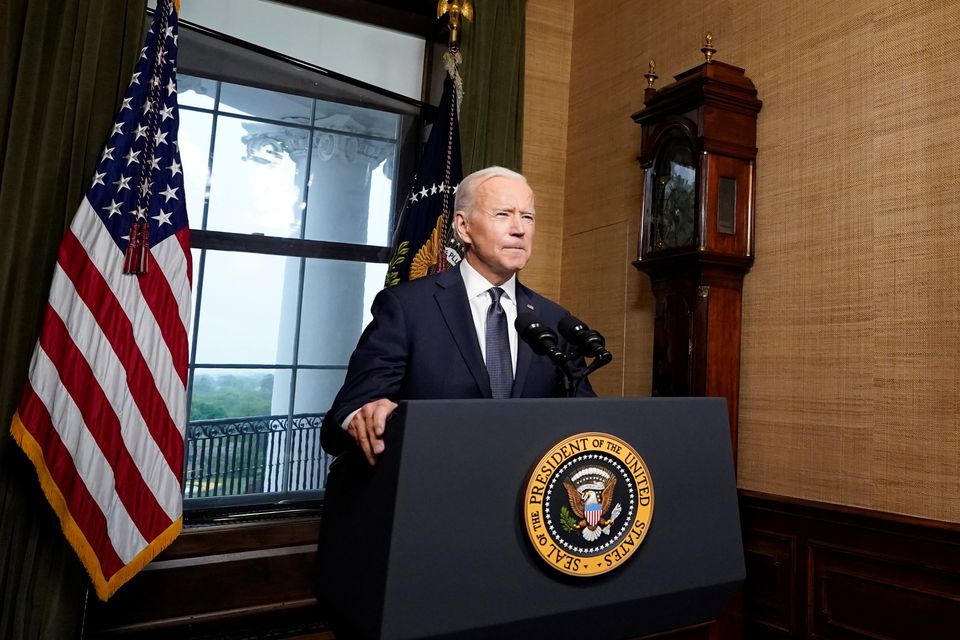President Joe Biden will issue an order Thursday allowing the U.S. government to authorize any sector of the Russian economy and use it to limit Russia’s ability to issue sovereign debt to punish Moscow for interfering in the 2020 U.S. election.
Officials who spoke on condition of anonymity said Biden would ban US financial institutions from participating in the primary ruble-denominated Russian sovereign bond market from June 14. US banks will be banned from participating in the primary market for non-ruble sovereign bonds from 2019. .
The latest move is part of a broader range of sanctions the White House plans to announce Thursday to force Russia to pay the price for “malignant” actions, such as election interference, cyber-burglary and the use of chemical weapons.
Among the sanctions to be made public are the inclusion of about 30 businesses in the list, as well as orders to evict about 10 Russian officials from the United States.
Russia denies interfering in the US election, organizing a cyberattack that used the US technology company SolarWinds Corp. (SWI.N) to infiltrate US government networks, and using a nerve agent to poison Kremlin critic Alexei Navalny.
On Tuesday, Biden spoke with Russian President Vladimir Putin to express concern about these issues and the build-up of Russian forces in Crimea and along the border with Ukraine.
It seems that Biden is trying to find a balance between protecting US national interests against Russia, while making it clear that he would prefer to have a less volatile relationship and cooperate on issues such as curbing Iran’s nuclear program.
The action on public debt, which specifically cites Russia’s central bank, national wealth fund and finance ministry, extends the move taken by the United States in 2019, when it banned US financial institutions from buying ruble-denominated debt directly from Russia in the primary market.
The first US official said the sovereign debt market, denominated in Russian rubles, was valued at about $ 185 billion, about a quarter of which was held by foreign investors. According to him, American investors make up about half of foreign holdings.

